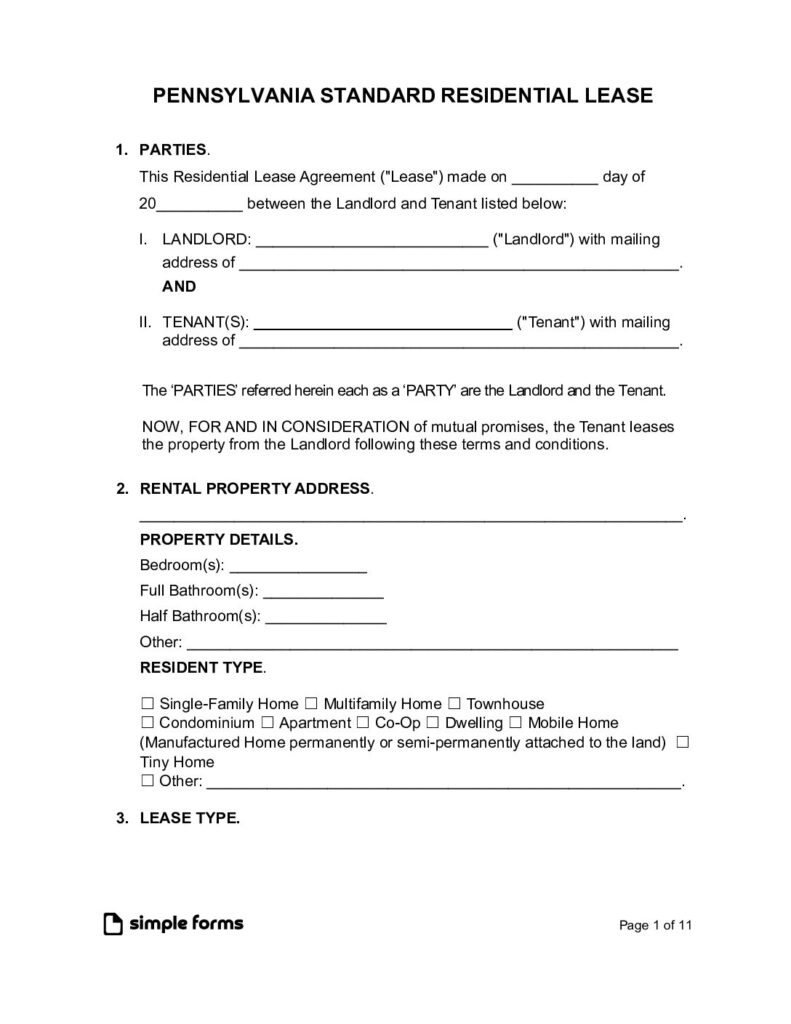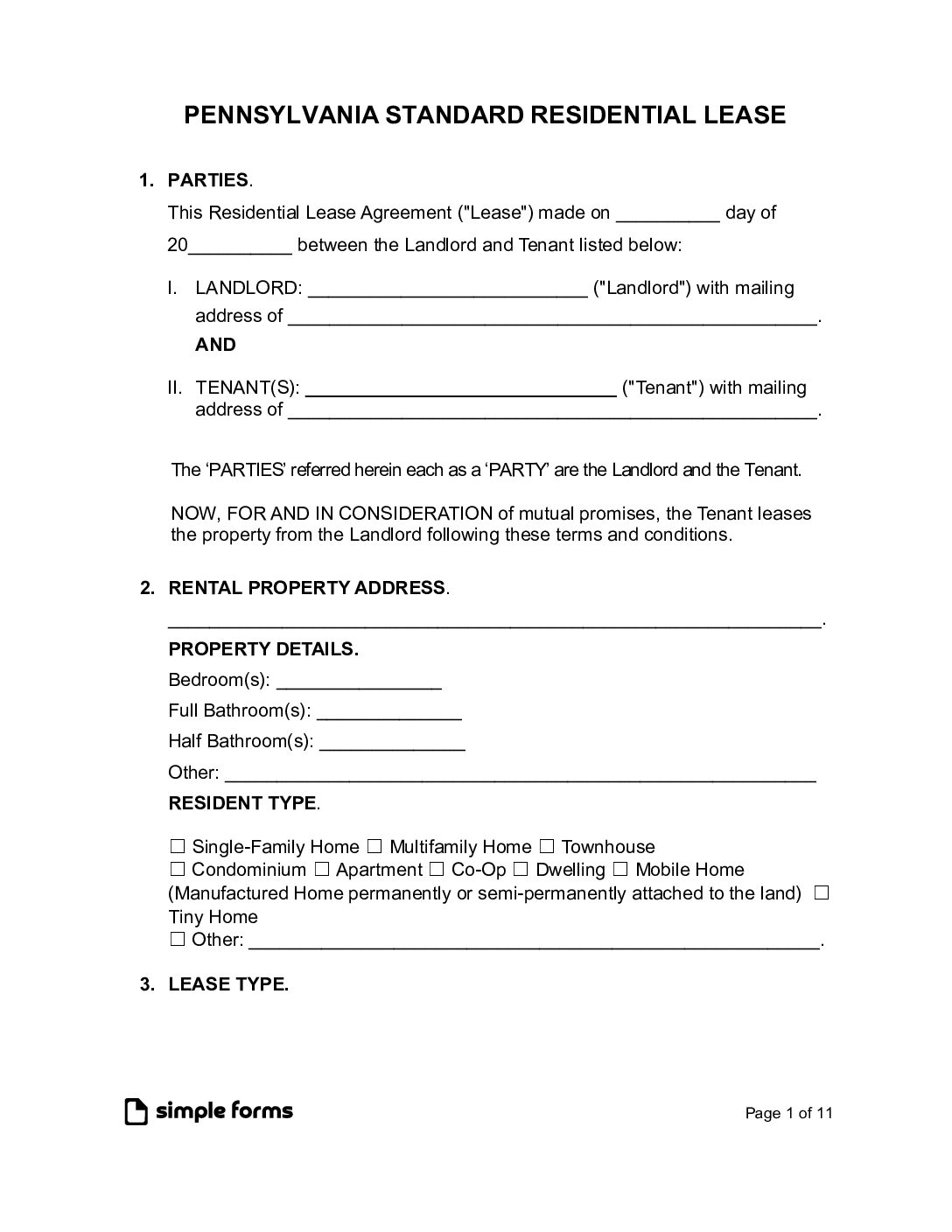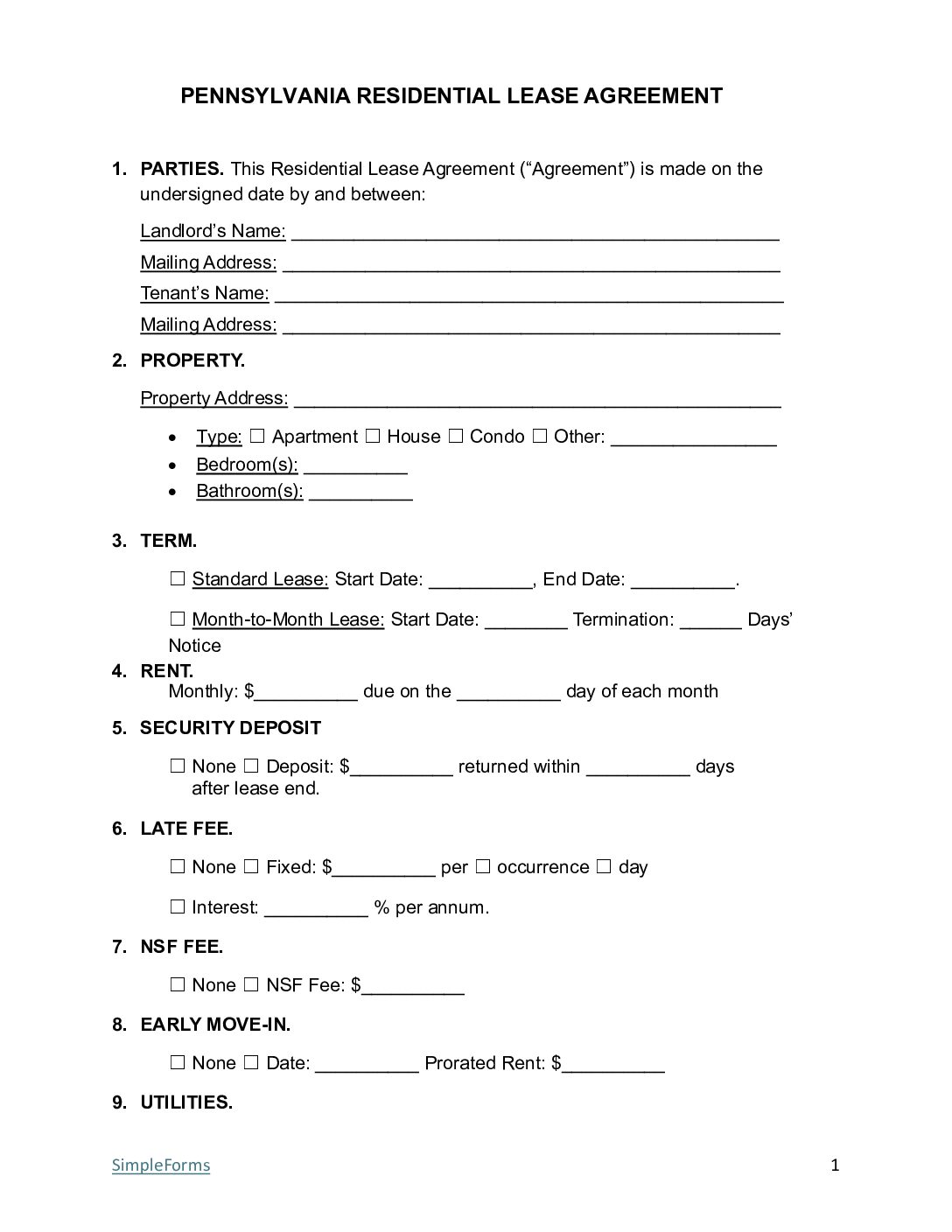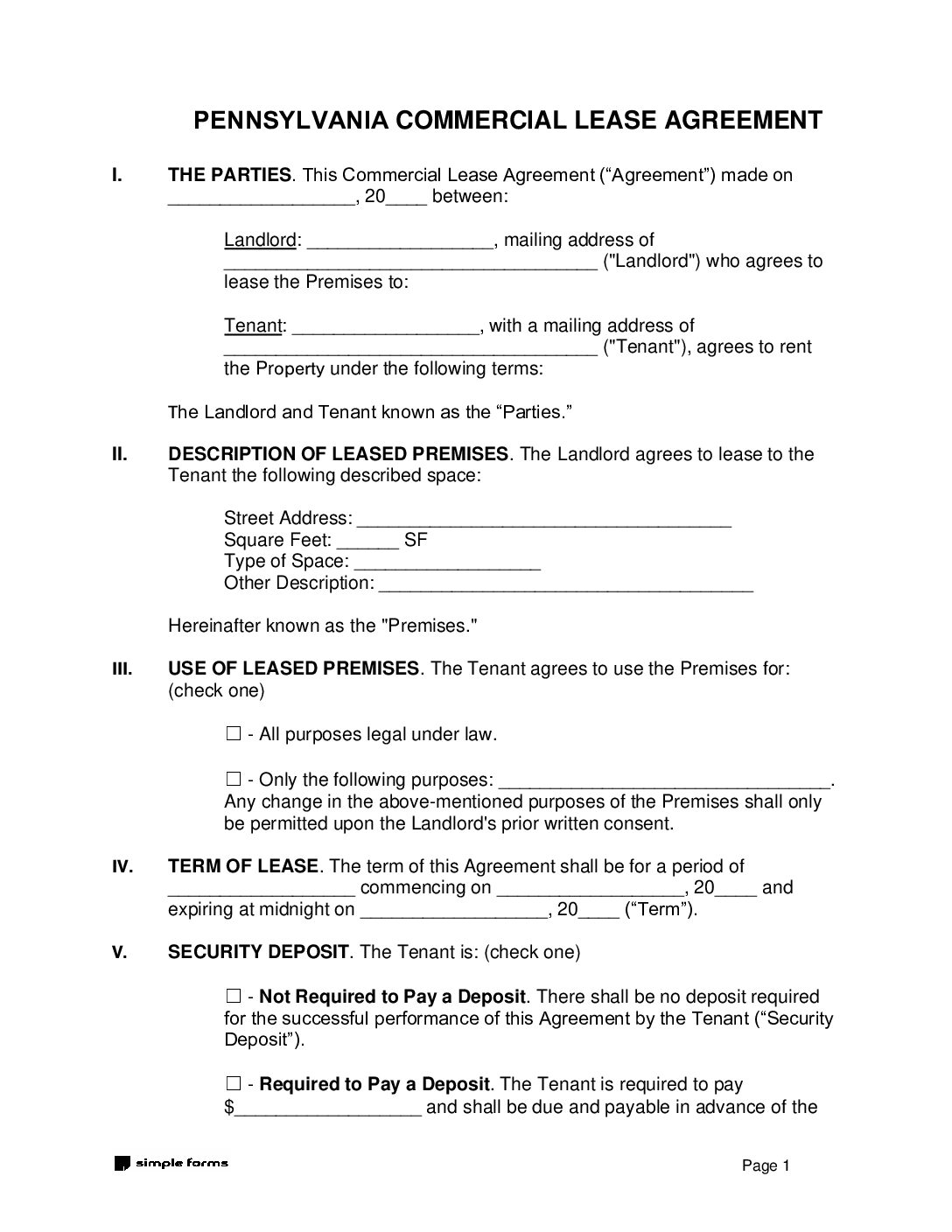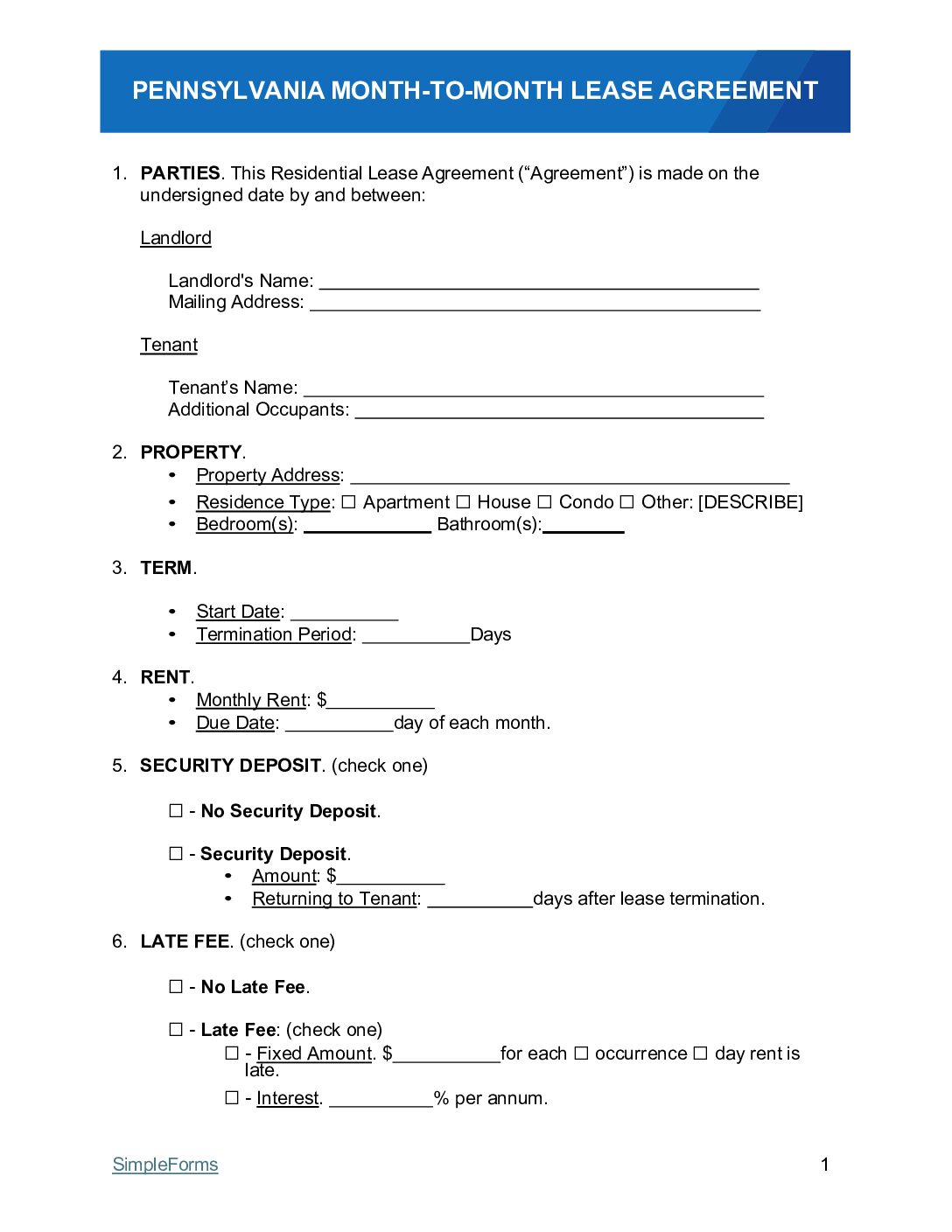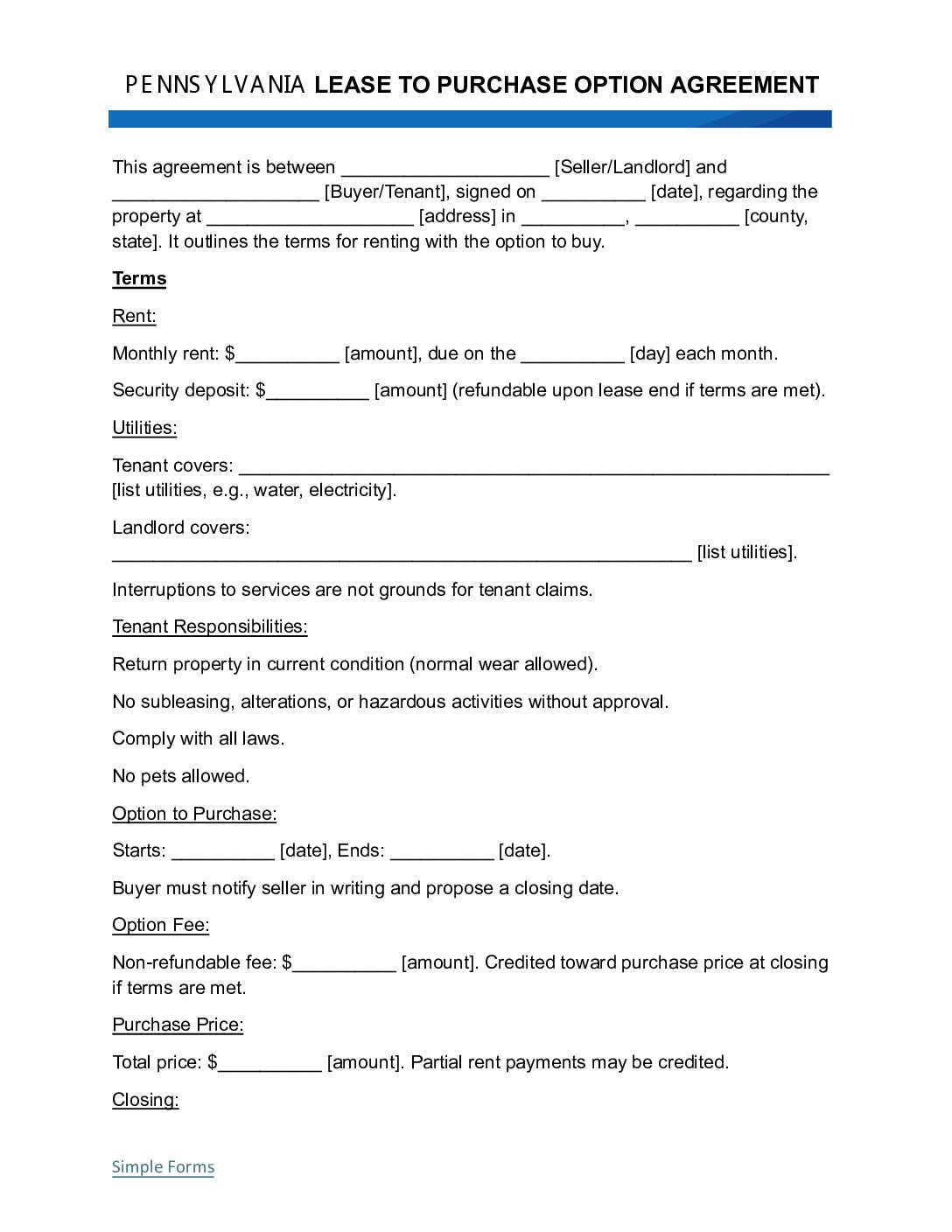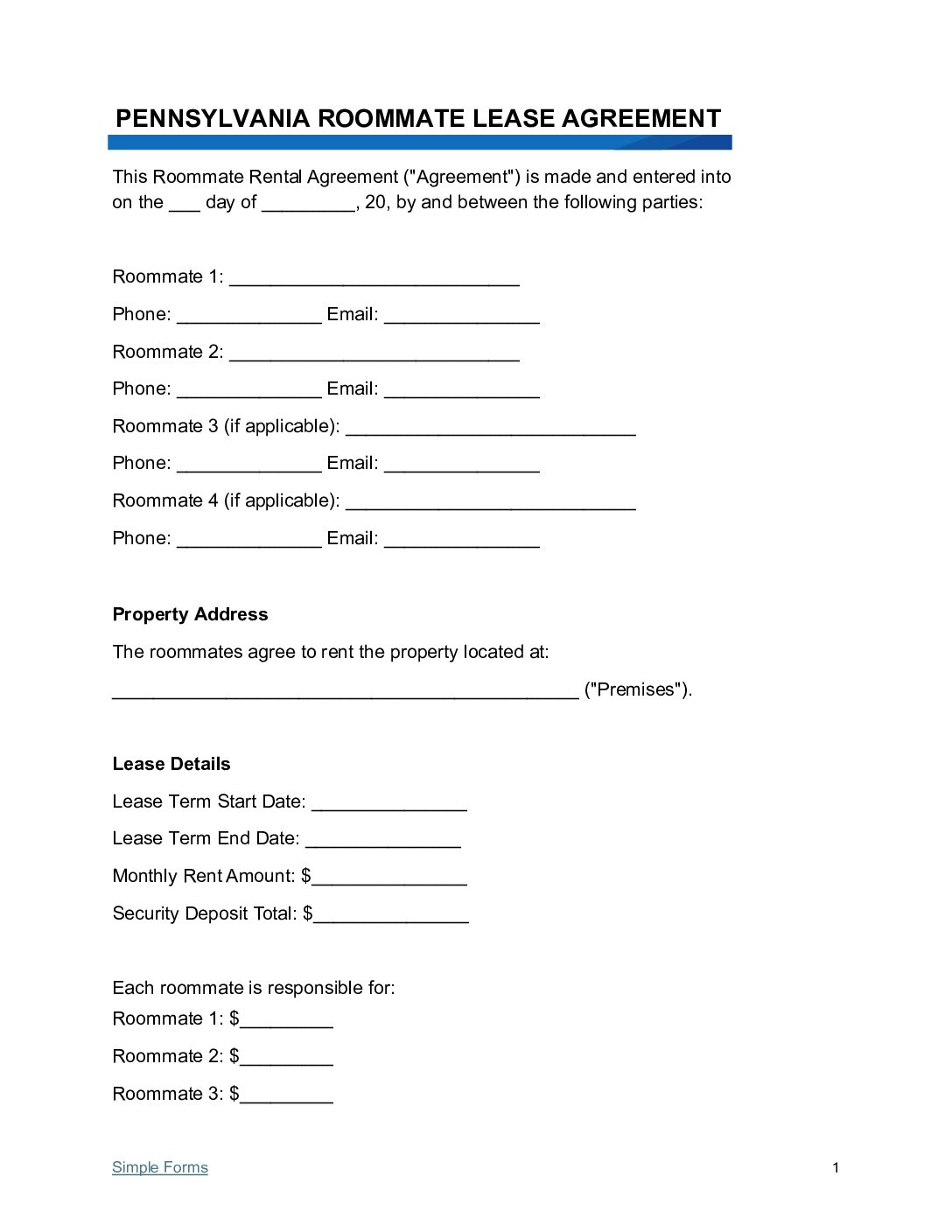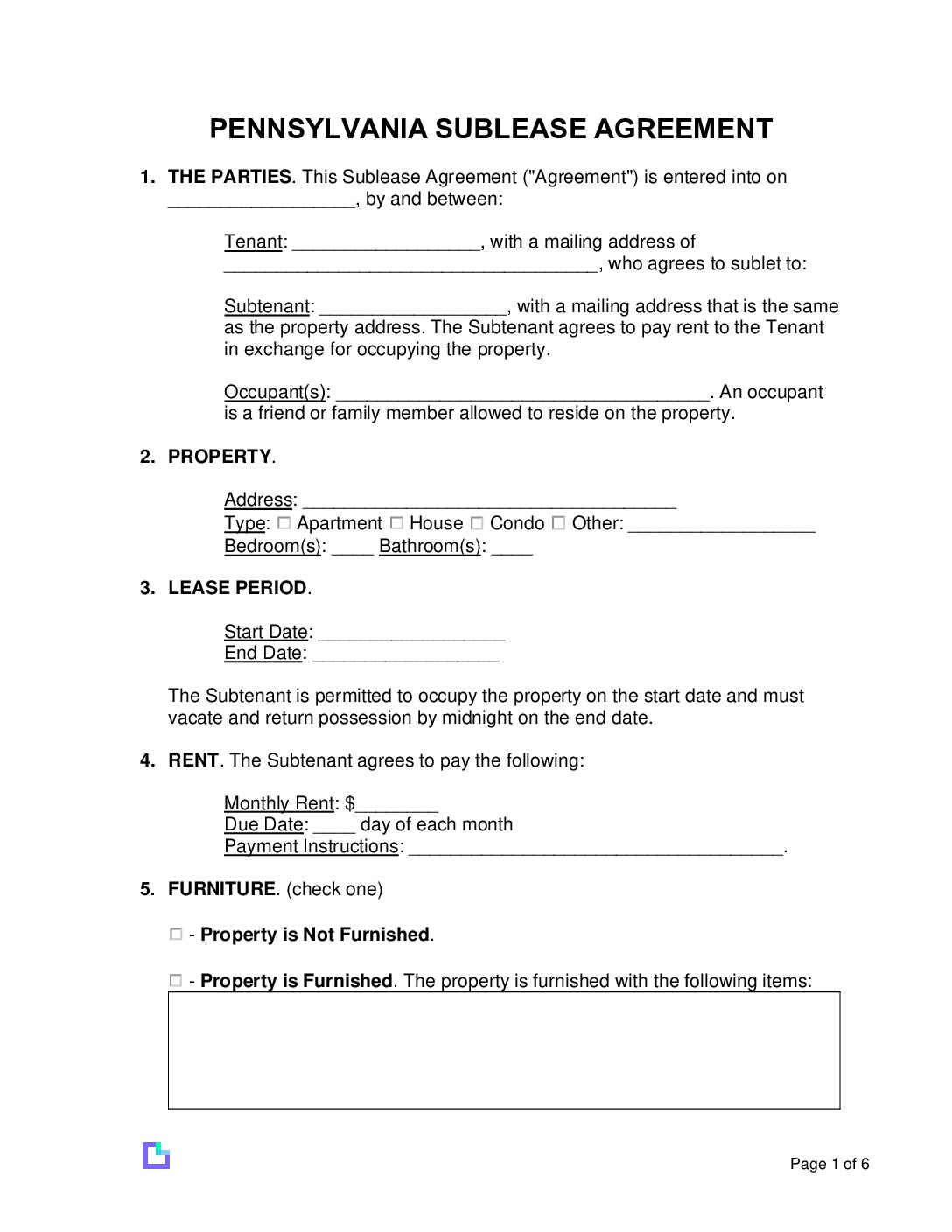Pennsylvania Rental Application Form– The landlord can request a rental application from tenants to verify the financial credentials. Once approved, both parties can sign the Pennsylvania rental lease agreement.
By Type (6)
| Pennsylvania Residential Lease Agreement – This rental contract lets a tenant lease a property for 12 months, with an option to renew. Download: PDF | Word (.docx) |
|
| Pennsylvania Commercial Lease Agreement – A business rental contract is used to lease space intended for commercial purposes. Download: PDF |
|
| Pennsylvania Month-to-Month Lease Agreement – A rental contract without an end date that automatically renews with every monthly payment made by the tenant. Download: PDF | Word (.docx) |
|
| Pennsylvania Rent-to-Own Lease Agreement – A lease that gives tenants the opportunity to purchase the property under set terms. Download: PDF | Word (.docx) |
|
| Pennsylvania Room Rental (Roommate) Lease Agreement – A written agreement between roommates that outlines their duties as tenants in a shared living space. Download: PDF | Word (.docx) |
|
| Pennsylvania Sublease Agreement Template – allows individuals to rent out some or all of their leased property to others. Download: PDF | Word (.docx) |
What does the Pennsylvania Rental Lease Agreement Form Cover?
This agreement includes the following information for landlords and tenants in Pennsylvania:
- Pennsylvania Landlord-Tenant Act of 1951
- Security Deposit Law
- Lease Termination
- Landlord’s Access to the Property
- Rent Due Date and Late Fees
- Eviction Procedures
- Property Maintenance
- Required Disclosure Forms
- Tenant’s Right to Withhold Rent
Pennsylvania Landlord-Tenant Act of 1951
The Pennsylvania Landlord and Tenant Act of 1951 governs landlord and tenant responsibilities, rental agreements, security deposits, eviction procedures, tenant rights, and required disclosures.[1]
Security Deposit Laws
- Two-Year Rule – Security deposits over $100 must accrue interest if the lease exceeds two years.
- Maximum Amount – For the first year, landlords may require up to two months’ rent; thereafter, one month.
- Return Timeline – Security deposits must be returned within 30 days after the lease ends, along with an itemized list of deductions (if any).[2]
Lease Termination Rules for Landlords and Tenants
Required notice for lease termination is as follows:
- Yearly Lease: 30 days’ notice.
- Month-to-Month: 15 days’ notice.
- No Notice: If the rental unit poses immediate health or safety risks.[3]
Landlord’s Access to the Rental Property
Pennsylvania law does not mandate the required notice period for property access, but reasonable notice (24 hours) unless it’s an emergency.[4]
Rent Due Dates and Late Fees
- Grace Period – Grace periods for late rent are not mandated by law; landlords must specify this in the lease.
- Late Fees – Late fees are permitted but must be reasonable and outlined in the lease agreement.
- NSF Fee – $50 per bounced rent check.[5]
Eviction Procedures and Notices
- Notice to Quit – 10 days for nonpayment of rent; 15 or 30 days for lease violations or termination (depending on tenancy length).[6]
- Grace Period – State law does not mandate a grace period for rent payments.
- Illegal Drug Activity – Tenants must vacate within 10 days for drug-related violations.
- Termination of Month-to-Month Lease – No specific legal requirement exists, but a 30-day notice is commonly practiced.
- Eviction Lawsuit – Legal actions are classified under “Actions for the Recovery of Possession of Real Property.”
Property Maintenance Requirements and Utilities
Landlords must provide a habitable living environment in accordance with Pennsylvania’s warranty of habitability. Shared utility responsibilities should be disclosed in the lease.[7]
Required Disclosure Forms (1)
Landlords must disclose the following:
Lead-Based Paint Disclosure – Landlords must provide a lead-based paint disclosure form to tenants if the property was built before 1978.
Tenant’s Right to Withhold Rent
Tenants may withhold rent if the property is uninhabitable. The tenant must notify the landlord and allow a reasonable time for repairs. If not resolved, tenants can repair the issue and deduct costs from rent (repair and deduct).[8]
Sources
Sample Pennsylvania Rental Lease Agreement Template
Pennsylvania-Standard-1-Year-Residential-Lease-Agreement-Template
